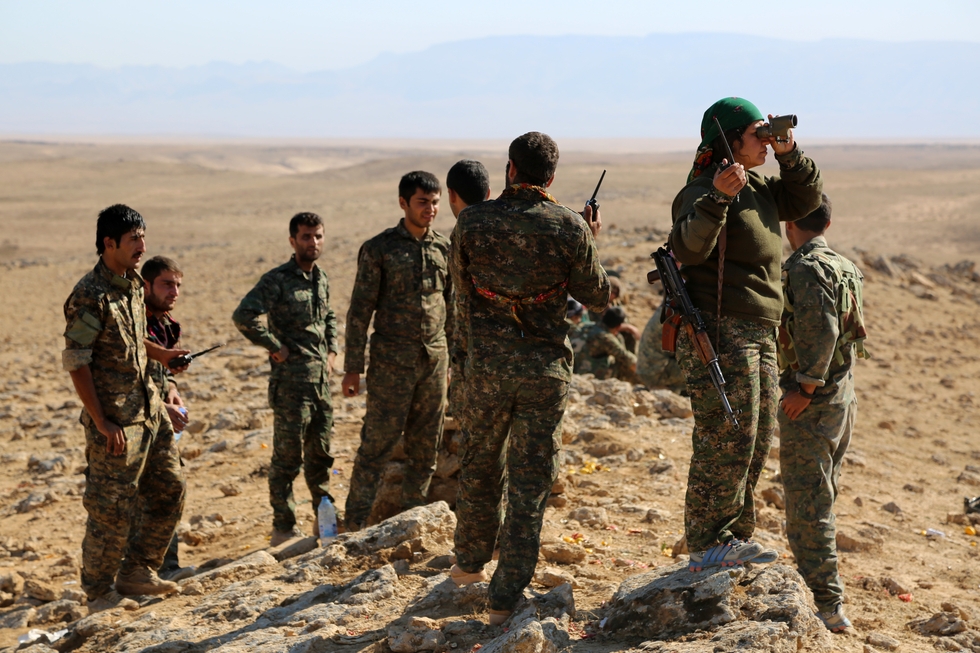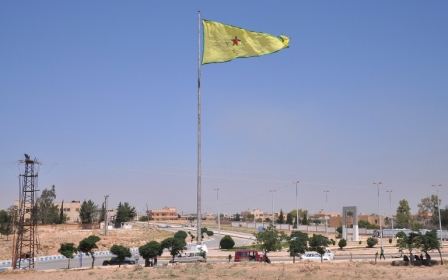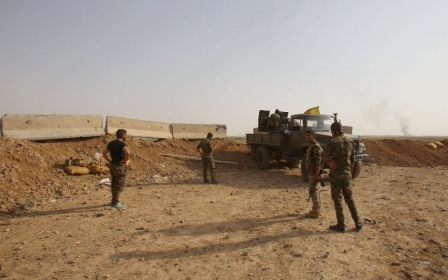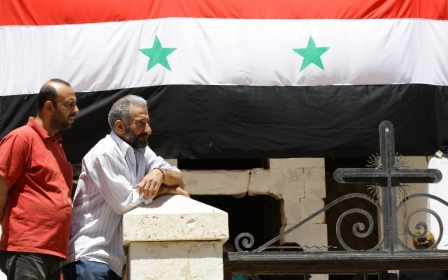Turkey 'shells Kobane' as Kurdish-Arab forces advance on strategic town

The Kurdish People’s Protection Units (YPG) has reported that the Turkish military fired on targets in Kobane in northern Syria.
The YPG press office said that the Turkish army shelled the village of Carikli on Tuesday morning. It also announced that Turkish shells hit an area to the west of Tal Abyad earlier in the morning.
Turkish Prime Minister Ahmet Davutoglu has previously warned that YPG forces could come under attack if they strayed out of a designated area.
"We have said, 'The PYD will not pass to the west of the Euphrates. We'll hit them if they do,” Davutgolu told reporters in October.
“And we did hit them twice,” he said, referring to an earlier shelling of the outskirts of Tal Abyad by the military.
The YPG has accused Turkey of being more concerned with targeting Kurdish groups than dealing with the Islamic State (IS), which has in recent months been purportedly responsible for a series of bomb attacks in Turkey.
“Instead of targeting ISIS [IS] terrorist occupied positions, Turkish forces attack our defenders’ positions,” the YPG said in July.
“We urge [the] Turkish leadership to halt this aggression and to follow international guidelines. We are telling the Turkish army to stop shooting at our fighters and their positions.”
The attack comes as the YPG, as part of the Kurdish-Arab Syrian Democratic Forces (SDF) alliance, is advancing on the town of Hawl in Hasakah province, a strategic point to capture as it would help severe the link between the two major IS strongholds of Raqqa and Mosul in Iraq.
“The SDF Campaign is important to all people in the region,” said Abdul-Hakam Hassan, an Arab member of the SDF, quoted by the YPG press office.
“The object of this operation is to free the local people from the intimidation of the terrorists, and the operation shows the reputation of the Syrian Democratic Forces to the population as legitimate, well-prepared and disciplined forces which have the will and ability to undermine terrorism and together build up a free and democratic society.”
The YPG has recently faced accusations of collective punishment and ethnic cleansing against the northern Syrian Arab population, after YPG forces prevented Arab civilians from returning to their homes following the defeat of IS in their villages.
“In its fight against IS, the Autonomous Administration appears to be trampling all over the rights of civilians who are caught in the middle," Amnesty's senior crisis adviser Lama Fakih has warned.
YPG spokespeople have strongly denied the allegations, saying that their allegiance to the SDF proved their opposition to ethnic sectarianism and claimed that accusations of village clearences were exaggerated.
"Now, let me be clear; we have liberated some 1,500 Arab villages," said Sipan Hemo, General Commander of the YPG, in an interview with Kurdish journalist Mutlu Civiroglu in October.
"Some of these villages became war zones between us and ISIS. Battles took days in some villages. I am not saying there has been no harm to those villages. But they are not more than four or five villages. We have 1,500 Arab villages liberated and people in them live in peace now. If it was true, why are these 1,500 villages still standing?"
On Tuesday, the YPG released a video appearing to show Arab locals thanking them for liberating their villages from IS.
"Thank God, we are glad you've come. Welcome,” says an old woman standing outside her house.
Another old man shows one of the fighters the ID card of his son who died in the fighting. The fighter says, "God bless him."
Speaking to the pro-Kurdish Firat News Agency (ANF), Kurdish SDF spokesperson Colonel Talal Ali Selo said that SDF forces were “as close to 3km to Hawl now” and said securing the town would enable them to “block and stop all these supplies which ISIS distributes to across all the other areas in Syria”.
Selo said that so far the SDF had captured 46 villages and “dozens” of hamlets from IS as they advanced on Hawl.
He added however that, for safety reasons, locals should not yet return to villages captured by the SDF.
“Despite the clearance of ISIS from the area, villages do not lend themselves to be safe for the people now because gangs have left many explosives and booby traps behind,” he said.
“We do not think they should turn back for a while more."
New MEE newsletter: Jerusalem Dispatch
Sign up to get the latest insights and analysis on Israel-Palestine, alongside Turkey Unpacked and other MEE newsletters
Middle East Eye delivers independent and unrivalled coverage and analysis of the Middle East, North Africa and beyond. To learn more about republishing this content and the associated fees, please fill out this form. More about MEE can be found here.




